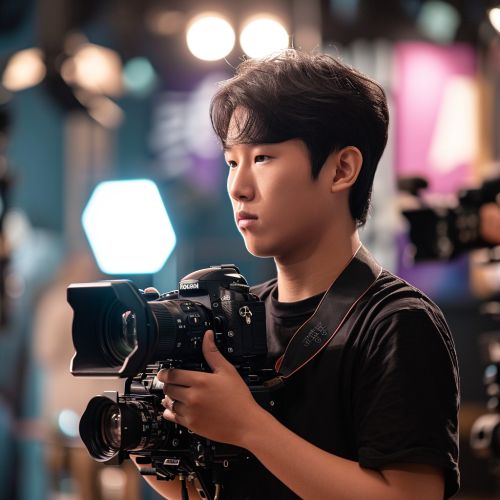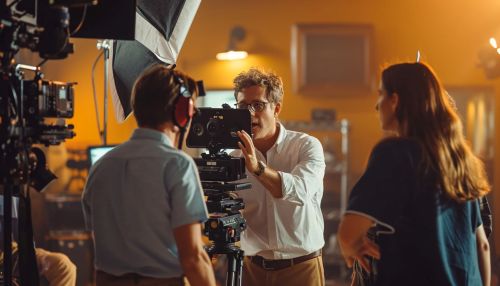Bong Joon-ho
Early Life and Education
Bong Joon-ho was born on September 14, 1969, in Daegu, South Korea. His parents were both educators; his father, Bong Sang-gyun, was a graphic designer and professor, while his mother, Park So-young, was a full-time homemaker. Bong's parents encouraged their children's creativity, and Bong's early interest in film was sparked by his father's collection of classic cinema.
Bong attended Yonsei University, one of the most prestigious universities in South Korea, where he studied sociology. However, his passion for film led him to join the university's film club, where he began to learn about filmmaking in a hands-on environment. In 1990, he transferred to the Korean Academy of Film Arts, where he studied in the department of filmmaking.


Career
Early Career
Bong's career began in the mid-1990s, when he worked as a screenwriter for various Korean film projects. His first directorial effort was a short film titled "White Man" in 1994, which garnered attention in the Korean film industry.
In 2000, Bong directed his first feature film, "Barking Dogs Never Bite". The film, a dark comedy about a man who resorts to extreme measures to silence the barking dog in his apartment building, was well-received by critics and established Bong as a promising new director in the Korean film industry.
Breakthrough and International Success
Bong's breakthrough came in 2003 with his second feature film, "Memories of Murder". Based on the true story of Korea's first serial murders, the film was a critical and commercial success, and it brought Bong international recognition.
In 2006, Bong directed "The Host", a monster movie that became the highest-grossing South Korean film of all time. The film was praised for its blend of horror, comedy, and social commentary, and it further established Bong's reputation as a unique and innovative filmmaker.
Bong continued to gain international acclaim with his subsequent films, including "Mother" (2009), "Snowpiercer" (2013), and "Okja" (2017). His films are known for their genre-bending narratives, dark humor, and social commentary.
"Parasite" and Global Recognition
In 2019, Bong directed "Parasite", a dark comedy thriller that became a global sensation. The film won the Palme d'Or at the 2019 Cannes Film Festival, making Bong the first Korean director to win the prestigious award. "Parasite" went on to win four Academy Awards, including Best Picture, Best Director, Best Original Screenplay, and Best International Feature Film, making it the first non-English language film to win the Best Picture Oscar.


Personal Life
Bong is married to Jung Sun-young, a screenwriter. They have one son together, named Hyo-min. Bong is known for his private nature and rarely discusses his personal life in interviews. He currently resides in Seoul, South Korea.
Legacy and Influence
Bong's films have had a significant impact on both the Korean and global film industries. His unique blend of genre elements, social commentary, and dark humor has influenced a new generation of filmmakers. His success with "Parasite" has also opened doors for other foreign language films in the global market.
